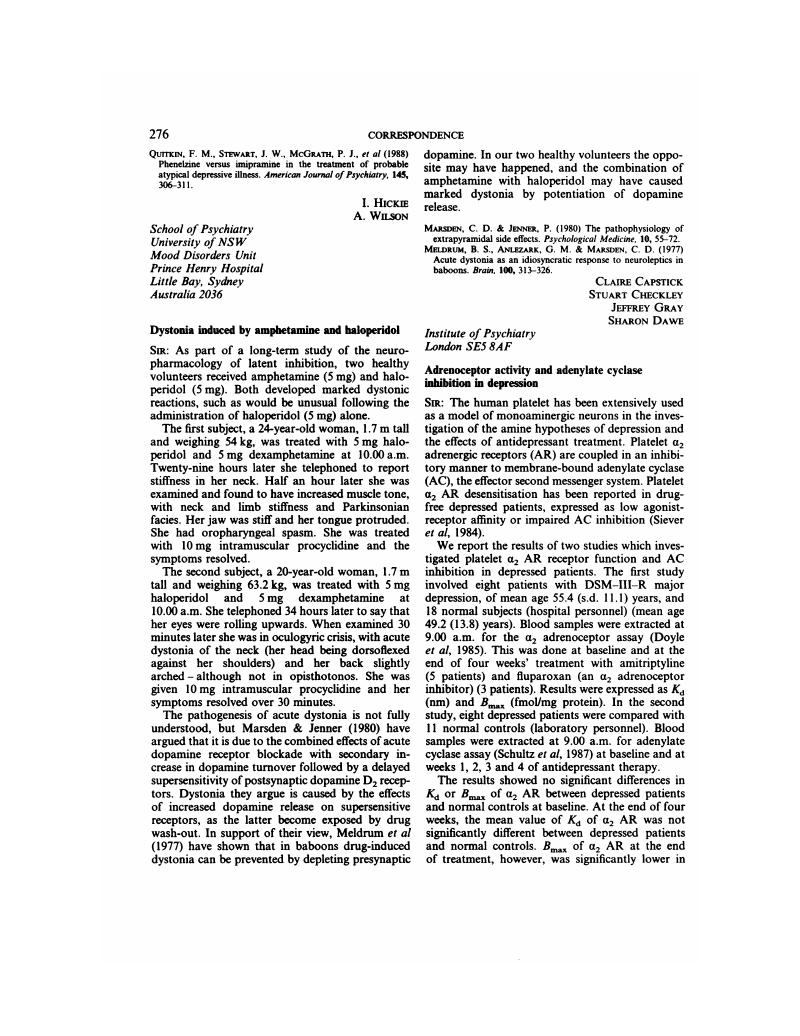Crossref Citations
This article has been cited by the following publications. This list is generated based on data provided by Crossref.
Menninger, John A.
and
Tabakoff, Boris
1997.
Forskolin-stimulated platelet adenylyl cyclase activity is lower in persons with major depression.
Biological Psychiatry,
Vol. 42,
Issue. 1,
p.
30.
Palego, Lionella
Giromella, Annalisa
Mazzoni, Maria Rosa
Naccarato, Antonio Giuseppe
and
Marazziti, Donatella
1998.
Adenylyl Cyclase Activity and Mood Disorders: Preliminary Data in Human Brain Postmortem.
CNS Spectrums,
Vol. 3,
Issue. 10,
p.
70.
Ikeda, Hiroshi
Menninger, John A.
and
Tabakoff, Boris
1998.
An Initial Study of the Relationship Between Platelet Adenylyl Cyclase Activity and Alcohol Use Disorder Criteria.
Alcoholism: Clinical and Experimental Research,
Vol. 22,
Issue. 5,
p.
1057.
Cohen, Miri
Sklair-Tavron, Liora
and
Pollack, Shimon
2004.
The Association of Forskolin-Stimulated Cyclic AMP Levels in Peripheral Blood Mononuclear Cells of Healthy People with Depressive Mood and Sense of Coherence.
Journal of Psychophysiology,
Vol. 18,
Issue. 4,
p.
177.
Hope, Bruce T.
Nagarkar, Deepti
Leonard, Sherry
and
Wise, Roy A.
2007.
Long-Term Upregulation of Protein Kinase A and Adenylate Cyclase Levels in Human Smokers.
The Journal of Neuroscience,
Vol. 27,
Issue. 8,
p.
1964.






eLetters
No eLetters have been published for this article.